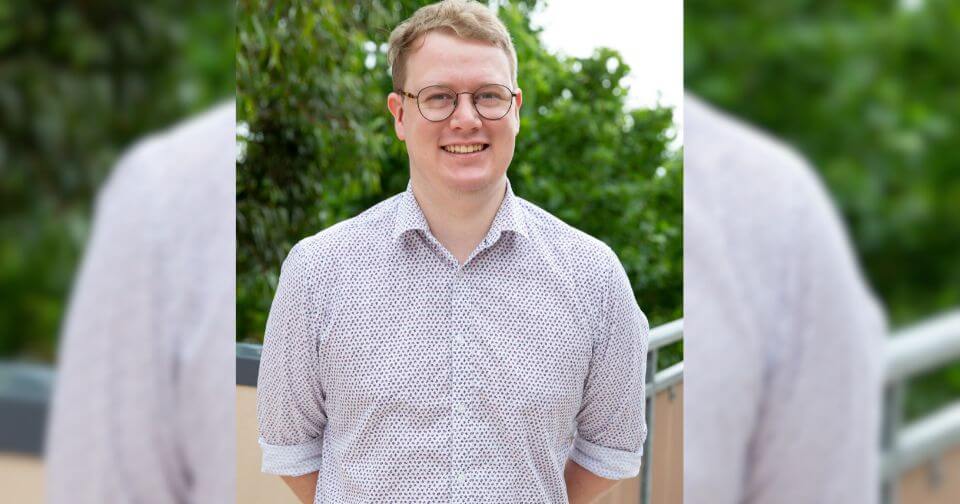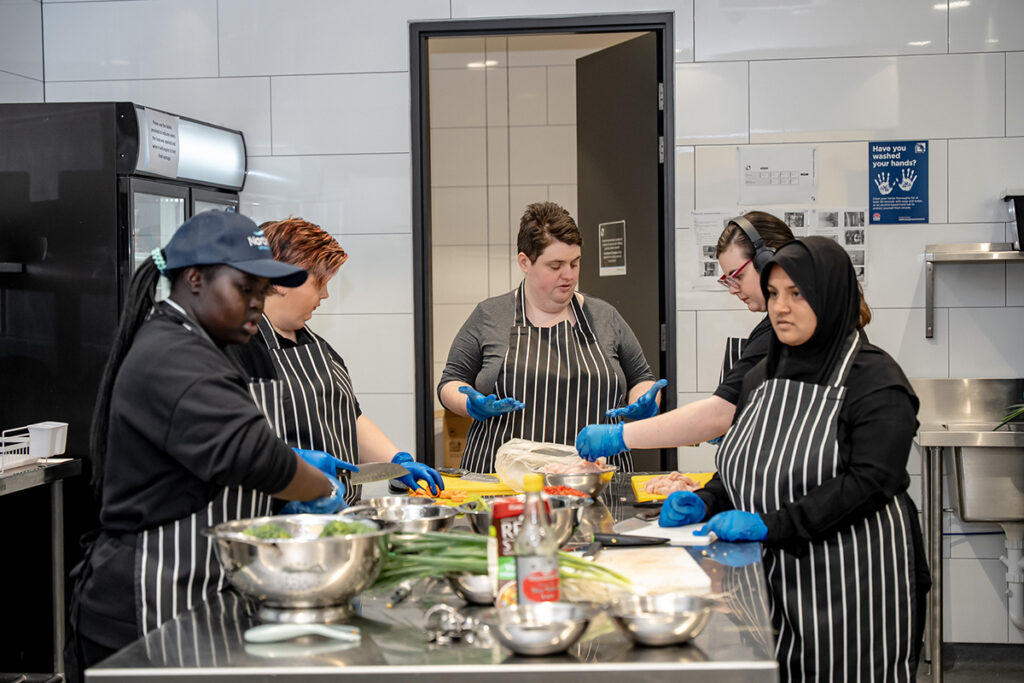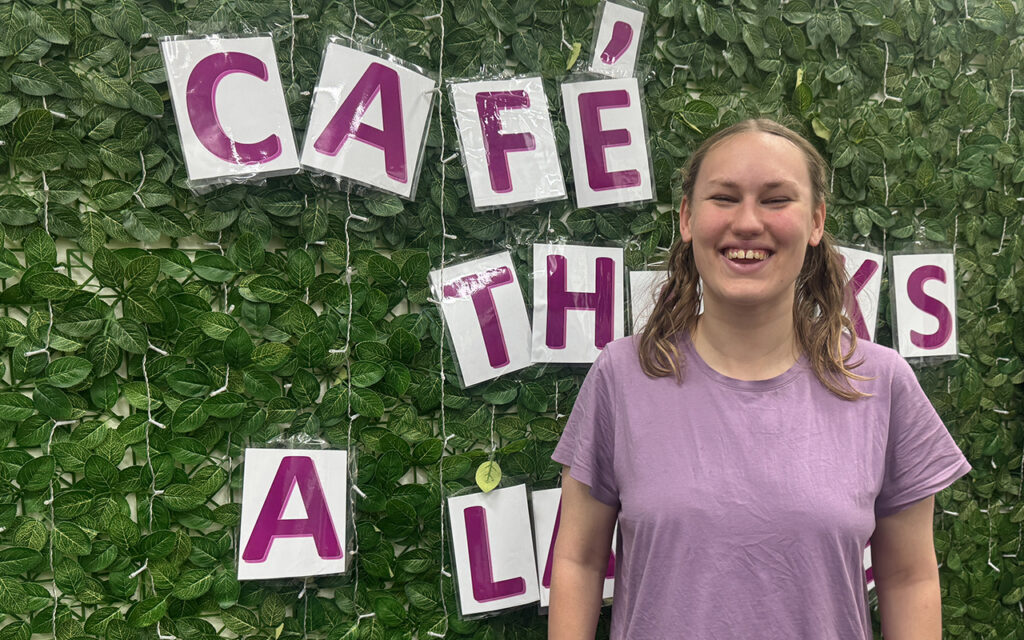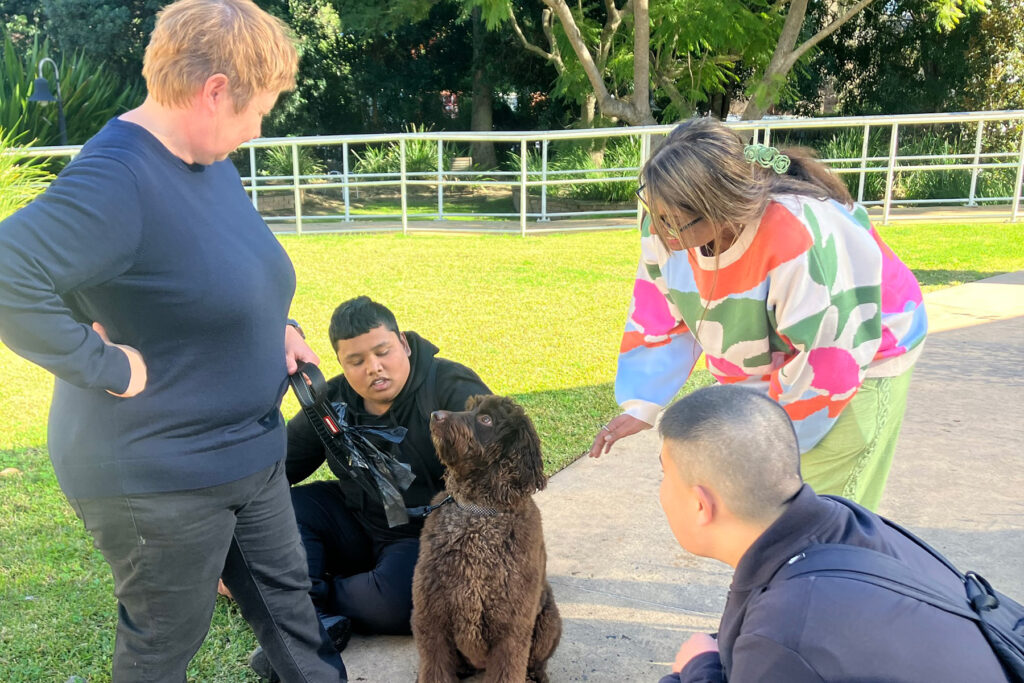
Trans Awareness Week is held from November 13 – 19 in the week leading up to Trans Day of Remembrance to help raise awareness of trans and gender diverse people, the issues facing our communities, and the ways people can get involved as allies to improve lives and create a fairer and more equal world for everyone.
To recognise this week, we share Alexis’s experience of being a non-binary employee at Northcott.
Meet Alexis
Some people might not understand the importance of gender diversity, pronouns and chosen names. It could be because they have never had their identity invalidated. To better understand, think of how you would feel if someone constantly called you the wrong name and refused to change. Or, if someone incorrectly assumed your gender based on what you wore that day, and refused to believe you when you said they were wrong?
What is gender diversity, a pronoun and a deadname?
For anyone who might not have heard of these terms before, here’s a quick explanation.
- Gender diversity describes a lot of different gender identities, rather than just male or female. Gender is how a person sees themselves in the world. A person whose gender identity is different from what they were assigned at birth is gender diverse.
- A pronoun is a word that is used to describe someone’s gender. For a gender diverse person, the typical pronouns of she/her or he/him, may not fit in with our identity. I use they/them as my pronouns because I am someone who does not identify exclusively as a man or woman.
- Some gender diverse people feel the name that they were given at birth does not fit their identity and will change it to what feels right. When a person changes their name, the name they were given at birth and no longer use, is called a “deadname”.
Northcott’s support
For me, when I see my deadname, it makes me feel as if my identity is not being valued and that people don’t see me as I am. When I started working with Northcott I was using the name Alexis. However, my deadname is still my legal name because the process of legally registering a name change is a long and expensive process. This has caused my deadname to sometimes appear in my email, roster, training roster, and other Northcott IT generated systems.
I have always been open and honest about being non-binary. I work in an incredibly supportive organisation, and with an office full of amazing people who use my correct name and pronouns. They advocate and educate others on my behalf when I am not there. This support and confidence rising from colleagues helped me to feel safe to raise the deadnaming issue with Northcott.
I spoke to the relevant staff at Northcott about how this is affecting me, and I was immediately supported to correct this issue. Northcott is currently looking at the systems we use and finding ways to stop my deadname appearing o that the name that I chose for myself is the only name that everyone sees.
I am fortunate to have such a great team around me, and I know that all our Northcott staff believe in our core values and will want to be respectful and supportive of non-binary and other gender diverse people. It isn’t as hard as you might think to be respectful of gender diversities, even if you have just started to learn about them.
Tips for being respectful of gender identities
Here are some simple steps you can take to make sure you are being respectful of all people’s gender identities.
- Use the name a person asks you to use. This is one of the most important parts of being respectful to a non-binary or gender diverse person. Don’t ask someone what their deadname is.
- Try not to make assumptions about people’s gender. You can’t tell if someone is gender diverse by simply looking at them. Remember a person’s appearance doesn’t determine their pronouns.
- If you’re not sure what pronouns someone uses, use their name instead. You can also introduce yourself and share your pronouns first, which will encourage the other person to share the same, or ask them what their preferred pronouns are, respectfully.
- If you realise you misgendered someone, give a quick apology and recognition to the person you misgendered. If you realise you misgendered someone after the moment or conversation, you can apologise to them later at an appropriate time and promise to catch yourself if you misgender in the future.
- When you see someone being deadnamed or misgendered, privately speak to the person who has done the deadnaming or misgendering and teach them how to do better next time.
- Take accountability for mistakes, assumptions, or thoughts you may have had in the past regarding gender diverse people and the LGBTQIA+ community at large, and try to learn from them.



Accessibility and Inclusivity
We respect and honour Aboriginal and Torres Strait Islander Elders past, present and future. We acknowledge the stories, traditions and living cultures of Aboriginal and Torres Strait Islander peoples on this land and commit to building a brighter future together.
Read more about our commitment to reconciliation

